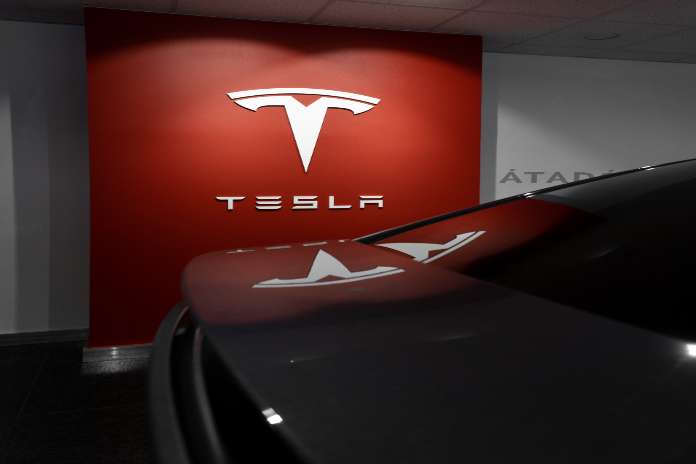Tesla Stock (NASDAQ:TSLA)
As Tesla, Inc. (NASDAQ:TSLA) embarks on its journey through 2023, the electric vehicle (EV) pioneer finds itself at a crossroads of great prospects and severe barriers.
On the plus side, the fact that all Tesla Model 3 and Model Y versions are eligible for the full federal tax credit, along with the company’s scale advantage and recent price decreases, bodes well for greater sales and competition. Bearish factors, such as Elon Musk’s legal fights, concerns about split attention, and the obstacles posed by a global economic slowdown and increased competition, loom.
I had avoided Tesla stock for years due to the inflated prices caused by the EV hoopla. Following the crash in 2022, though, Tesla was a no-brainer. Six months later, TSLA is one of the best-performing stocks on the market, and I expect the stock to continue to rise.
Model-3 EV Tax Exemption
The recent announcement that all Tesla Model 3 and Model Y variations are eligible for the full $7,500 federal tax credit for clean automobiles has important ramifications for Tesla and the EV market. The credit could boost demand for Tesla’s Model 3 and Model Y sedans. With the availability of the full tax credit, these EVs become more accessible, effectively lowering the purchase price. By lowering the financial barrier, the affordability element is critical to driving consumer acceptance of EVs. It has the potential to increase Tesla’s sales volume, particularly for entry-level models with lower post-tax credit costs. Increased demand may help Tesla boost its market share in the EV segment.
The extended eligibility for the federal tax credit, in addition to raising sales volume, boosts Tesla’s competitive position against other EV manufacturers. Due to battery material sourcing and vehicle manufacturing locations, some competitors, such as the Hyundai Ioniq 6 and Polestar 2, do not qualify for federal credit. Tesla, on the other hand, can now give full credit to all Model 3 and Model Y variations. This provides Tesla with a pricing advantage and increases its attraction to prospective customers.
When assessing the impact of this transition, it is critical to examine the evolving landscape of EV incentives and regulations. The eligibility standards for federal tax credits are subject to change, and investors may expect strict regulations for crucial mineral sourcing and battery component manufacture by 2024. Tesla, as a significant EV player, will need to adjust its sourcing and production techniques in order to remain eligible for future tax credits. Compliance with these changing criteria will be critical to Tesla’s long-term success in maximizing incentives and maintaining competitive prices.
Furthermore, state-level incentives may have an impact on Tesla vehicle affordability. Customers in places with extra tax credits or incentives may see even larger price cuts, making Tesla vehicles more appealing and economical when compared to gas-powered alternatives. Understanding these regional differences in incentives is critical for assessing the possible influence on Tesla’s sales and market penetration in various jurisdictions.
Insider Trading in the Age of Elon Musk
Musk, Tesla’s CEO, is accused of insider trading and manipulating the cryptocurrency Dogecoin. These allegations have serious consequences for both Musk and Tesla, potentially resulting in legal ramifications, reputational damage, and a detrimental influence on Tesla stock performance.
Insider trading is, of course, prohibited, and if proven, Musk could face harsh penalties, fines, and possibly criminal prosecution. Allegations of market manipulation and fraudulent tactics might potentially tarnish Musk’s reputation as a major person in the tech and business worlds, damaging his position in Tesla and other ventures (such as SpaceX).
Investors may be concerned that these allegations could erode Tesla’s confidence and leadership. Shareholders may get concerned about the company’s governance and ethical policies, causing the stock price to drop. Furthermore, the bad mood around the charges may have an impact on Tesla’s ability to attract and retain new investors.
Furthermore, allegations of insider trading and market manipulation may have long-term consequences for Tesla’s growth. For starters, legal ramifications and regulatory scrutiny may take management’s focus and resources away from essential business operations, impeding product development, innovation, and production scaling. Furthermore, if Tesla is believed to be engaging in unethical acts, it may lead to a loss of confidence, affecting customer loyalty and sales.
Twitter’s Influence
Elon Musk’s recent announcement that he will step down as CEO of Twitter and become the social media platform’s chief technology officer has sparked good emotion among Tesla shareholders. This decision improves Tesla’s stock and allows Musk to focus more on his firms, Tesla and SpaceX.
Musk’s departure from Twitter, though, may result in anything other than benefits for Tesla. It allows Musk to concentrate on other projects, such as his new business X.AI, which may take his attention away from Tesla. There are also rumors about Musk’s interest in establishing a “TruthGPT” alternative to OpenAI’s ChatGPT, which could further divert his attention away from Tesla.
Nonetheless, there are data signals outside of the Twitter statement that gives Tesla shareholders hope. Long wait times, for example, indicate that demand for Tesla vehicles remains strong despite greater competition in the EV market.
Elon Musk’s decision to consider advertising for Tesla also represents a fundamental shift in the company’s strategy. Previously, Musk questioned the necessity for advertising, noting Tesla’s tremendous demand. However, greater EV competition, combined with rising borrowing rates, has resulted in price concessions by Tesla and potential margin pressure. Musk’s willingness to experiment with advertising illustrates his understanding of shifting market dynamics and the significance of reaching a bigger population segment.
Musk’s exit from Twitter, viewed as a “lingering albatross,” may relieve concerns and distractions, giving investors a clearer picture of Tesla’s performance and prospects. A positive mood can lead to improved investor confidence and support for Tesla’s expansion plans. Musk’s concentration on other initiatives and competing with OpenAI’s ChatGPT, on the other hand, may divert his attention away from Tesla. This perspective shift in focus could have an impact on Tesla’s growth if Musk deviates greatly from the firm.
A Difficult 2023
Tesla anticipates a difficult year ahead in the face of a worldwide economic slowdown and high-interest rates. Musk has acknowledged the global economic environment’s impact on Tesla’s operations and financial performance, but he remains confident in the company’s capacity to overcome these challenges.
One of the most significant issues Tesla is now facing is a loss of market share in the US EV industry. Tesla’s market supremacy is steadily eroding as more affordable EV options become available. Tesla had a market share of 70.5% in 2021, which fell to 63.5% in 2022. Established automakers such as General Motors (NYSE:GM), Mercedes-Benz (OTCPK:MBGAF), BMW (OTCPK:BMWYY), and Audi are ramping up EV manufacturing, putting pressure on Tesla. The availability of more cheap options, such as the Chevrolet Bolt, is luring customers away from Tesla’s more expensive models.
To combat this competition, Tesla has implemented considerable price decreases on its automobiles worldwide. However, there are concerns about decreased demand and Tesla’s need to compete on price, which contradicts its earlier practice of rarely offering discounts.
Another major hurdle for Tesla is its connection with China. Elon Musk’s latest trip to China yielded no solid arrangements or agreements for the expansion of Tesla’s Shanghai Gigafactory. This visit came at a time when relations between China and the West were worsening. While Shanghai officials have voiced support for Tesla’s expansion goals and have welcomed new goods and technology, there are still concerns about the regulatory climate and geopolitical issues that could damage Tesla’s operations in China.
A sluggish global economy may also result in lower consumer spending, which may limit demand for EVs, particularly Tesla models. Furthermore, increasing interest rates may boost Tesla’s borrowing costs, thereby hurting its development plans and overall profitability.
Furthermore, Tesla is seeing increased competition in the EV sector. As the report points out, Tesla’s market share in the United States is declining as new, more affordable options join the market. Established automakers are scaling up the production of EVs in a variety of pricing ranges, giving consumers options. While price cuts can boost demand in the short term, they can also have an impact on profitability. Offering discounts and cutting prices may attract buyers in the near term, but if demand does not increase much, profit margins may be squeezed.
Despite these obstacles, Tesla capitalizes on its scale advantage by opening new plants and boosting manufacturing capacity. Expanding production in several places may help Tesla satisfy rising EV demand while also lowering production costs.
Takeaway
In conclusion, while Tesla, Inc. confronts a number of obstacles in 2023, including growing competition, legal fights, and economic uncertainty, there are reasons to remain cautiously optimistic about the firm. The increased eligibility for the federal tax credit boosts Tesla’s competitiveness and growth prospects in the electric vehicle industry. Following his departure from Twitter, Elon Musk’s focus on Tesla may result in more efficient decision-making and strategic planning. Finally, with additional plants and improved manufacturing capacity, Tesla is well-positioned to fulfill rising EV demand.
Featured Image: Unsplash















